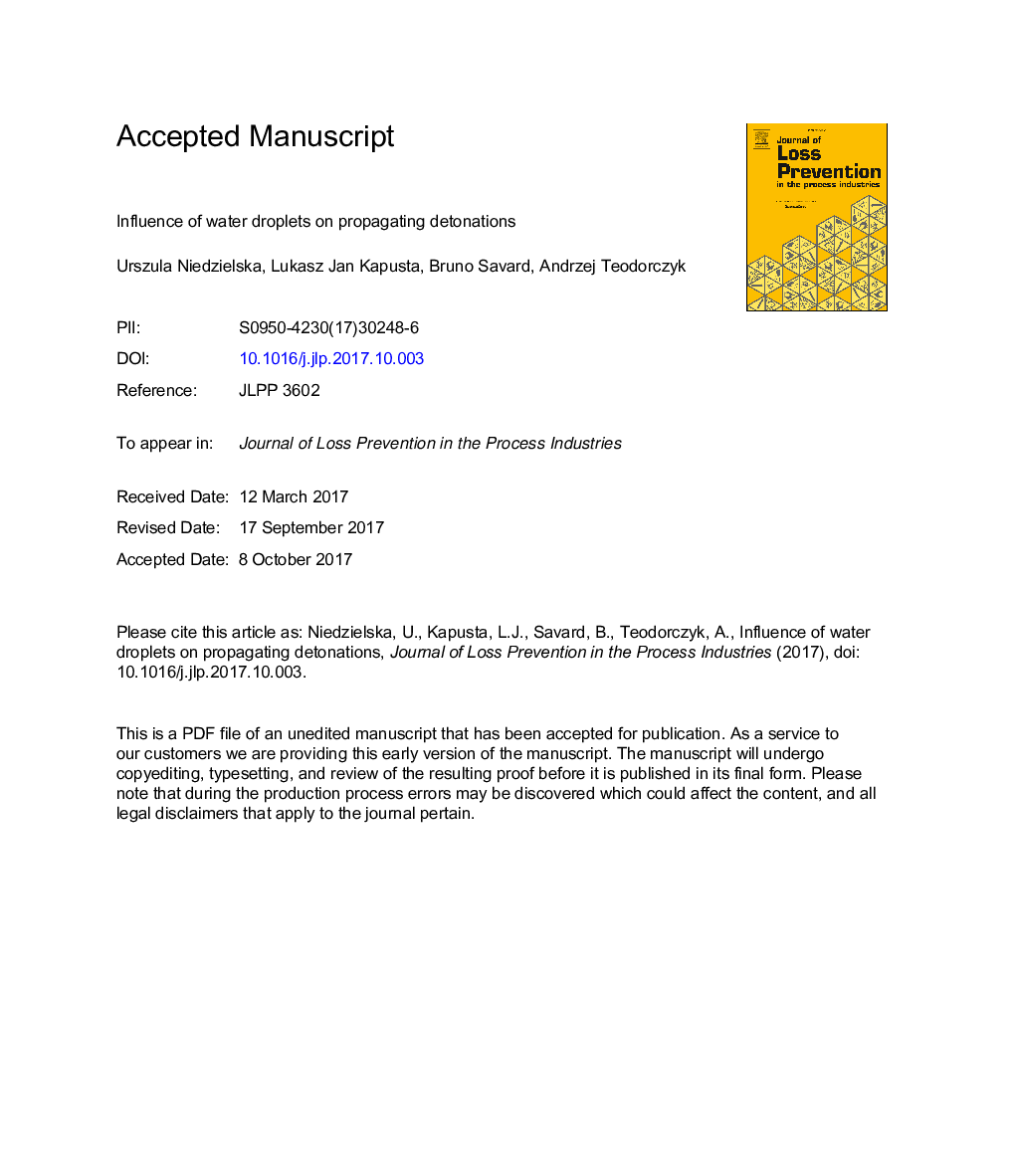| Article ID | Journal | Published Year | Pages | File Type |
|---|---|---|---|---|
| 6972976 | Journal of Loss Prevention in the Process Industries | 2017 | 18 Pages |
Abstract
In order to mitigate flame acceleration and detonation in hydrogen-air mixtures, which can lead to the release of harmful radionuclides in severe nuclear plant accidents, water spray systems are being considered. A series of experiments were conducted in a detonation tube filled with hydrogen-air mixtures. It was found that for a water droplet curtain with 215 μm droplets the detonation speed deficit was increasing with increasing size and density of the water droplet cloud, decreasing the speed below the speed of the detonation products. Moreover, as the initial pressure and equivalence ratio decreased, the speed deficit increased and, for the conditions tested, reached up to 16%. For most cases, 215 μm droplets quenched the detonation temporarily but the flow rapidly accelerated back to the initial detonation speed. It was concluded that the quenching effect for 215 μm droplets was limited by relatively fast evaporation time. However, this limitation was found to be partially overcome by the usage of additional injectors to reduce to injection time for a given injected mass of water. In contrast, nozzles giving water droplet diameters of 500 μm enabled complete detonation quenching.
Related Topics
Physical Sciences and Engineering
Chemical Engineering
Chemical Health and Safety
Authors
Urszula Niedzielska, Lukasz Jan Kapusta, Bruno Savard, Andrzej Teodorczyk,
